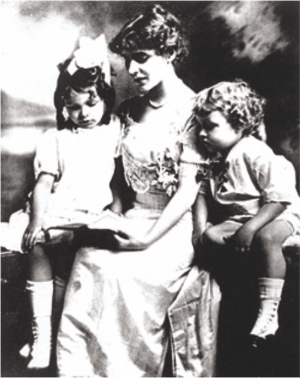| Home - Back Issues - The Team - Contact Us |
 |
| Volume 10 |Issue 40 | October 21, 2011 | |
|
|
Literature Tennessee's Tragic Muse Rebecca Haque
Poetry had always held a definite allure for Tennessee Williams. He had begun composing verses very early in his creative career, and his collection of poems, notably In the Winter of Cities, are proof of his poetic genius. In an interview in 1969, Tennessee defended his belief in the significance of the poetic element in a play: "I think plays can be just as lyrical as a poem can be; you can use just as much personal lyricism in a play as you can in a poem." In the unforgettable 'memory' play, The Glass Menagerie (1945), Tennessee weaves the personal and the lyrical elements into a haunting, mesmerising dramatic entity. The central character, Laura, fragile and crippled, is essentially a portrait of his beloved sister Rose. In The Glass Menagerie, Tennessee attempted to come to terms with the reality of tragedy in his sister's life. Rose and Tennessee were very close, and Rose is as much a part of his active and creative life as was Dorothy in Wordsworth's. Rose and Tennessee lived in their own special, secure world of the imagination, blotting out the viciousness of the world-at-large. However, with the passage of adolescence, on the brink of womanhood, the more sensitive and introverted Rose was unable to make the necessary adjustments to the reality of adult social and public commitments. She was unable to face life's hurdles, saw only brutality and cruelty all around her, and slowly began a process of psychological withdrawal which ended with the complete disintegration of her personality. Her schizophrenia was finally accepted by Tennessee and his mother Edwina. Tragically, after an unsuccessful lobotomy, Rose was committed for life to a sanatorium. For Tennessee, Rose was the single most unbearably painful topic in his life. A wound that never healed, a fate he could neither accept nor escape, a guilt he felt at being spared her deathly pale existence. Tennessee was haunted forever by the horror of the totality of his sister's destruction. Ironically, Rose is what made Tennessee the Tennessee Williams we know so well: his promiscuity and other excesses on the outer, seedy , fringe of bohemian existence can be seen as furious, agonised denial of Rose's fate, but more significantly, all his plays begin and end with Rose. The plays are replete with complex studies of women, and after the award-winning and intensely visually and sensually effective Hollywood film adaptations, Vivian Leigh as Blanche DuBois in A Streetcar Named Desire (1947), Elizabeth Taylor as Maggie in Cat on a Hot Tin Roof(1955), and Ava Gardner as Hannah in Night of the Iguana (1961), have become inscribed in the psyche of the world-wide audience. Tennessee ends The Glass Menagerie with a cry of desolation, a silent scream against the injustice of gods to men, and a soft but final farewell to Rose: Blow out your candles, Laura! Finally, upon her death, he lovingly placed this lyric as epitaph on her gravestone. In his candid Memoirs (1975), Tennessee writes, I have never doubted the existence of God, before later admitting a disbelief in an after-existence. However, another sentence reveals the stoic fortitude and guarded optimism of a true poet. He enthuses, Mornings, I love you so much, as he celebrates their triumph over night. John Whiting, in The Art of the Dramatist (1970) reassessed the work of Tennessee Williams and proclaimed that all nine major plays, written in twenty-one years, is a most important subscription to modern drama. The man lonely, individualistic, vulnerable, a poet, is one of its most important figures. But the best summation of Tennessee's life is in his own words from his Memoirs: I've had a wonderful and terrible life and I wouldn't cry for myself. Would you? Rebecca Haque is Professor and Chairperson, Department of English, University of Dhaka.
Copyright
(R) thedailystar.net 2011 |
